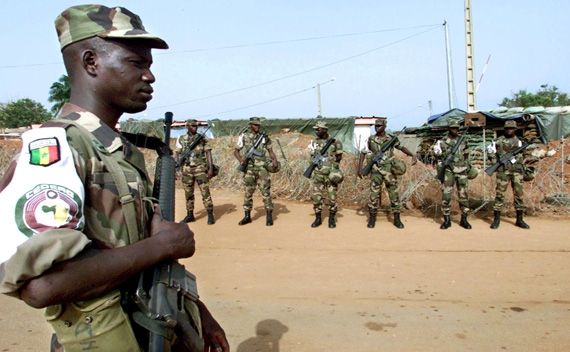ECOWAS in Cote d’Ivoire
More on:

The international community, led by the Economic Community of West African States (ECOWAS), is raising the possibility of foreign intervention to break the seeming deadlock in Cote d’Ivoire between Laurent Gbagbo and Alassane Ouattara.
Outside the country, there is unanimity that Ouattara is the legally elected president, and that Gbagbo must go. However, Gbagbo enjoys substantial support within Cote d’Ivoire, based on religion, ethnicity, and his skillful use of repression. Using his position, Gbagbo is credibly threatening civil war, including threats against citizens of other West African states residing in Cote d’Ivoire, such as Burkinabes and Nigerians, if ECOWAS seeks to displace him by force. The Nigerian community, for one, takes this threat seriously and has publicly urged Abuja to remain neutral in the Cote d’Ivoire crisis.
To bolster his position, Gbagbo has also generated significant “indigenous” antipathy against “immigrants” from other West African states that are associated with Ouattara. (Many of them in fact were born in Cote d’Ivoire.) His spokesperson and the press that supports him are raising the specter that outside intervention is a “plot” orchestrated by France or the United States to get him out. His popular strength is illustrated by yesterday’s general strike, organized by Ouattara’s supporters. The strike was universally observed in Bouake, Ouattara’s territory, not at all in parts of the country favorable to Gbagbo, and only sporadically in Abidjan.
Outside military intervention risks igniting a civil war with the possibility of massacres of foreigners. In addition, as some thoughtful Nigerian press commentary is noting, previous ECOWAS interventions in Sierra Leone and Liberia lasted a long time and may have prolonged the conflict. For the international community, the principle with respect to Cote d’Ivoire should be first ’do no harm,’ with recognition that outsiders will have little impact over what develops. The Obama administration should be cautious about encouraging outside military intervention as a solution to the current standoff.
(Photo: Luc Gnago/ courtesy Reuters)
More on:
 Online Store
Online Store